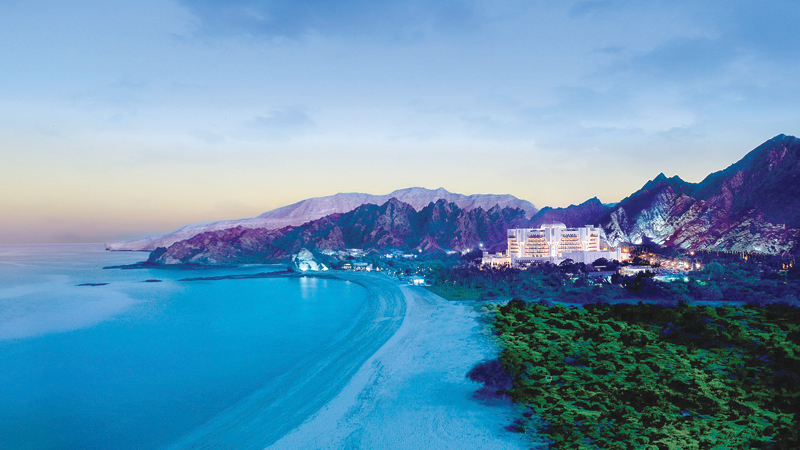

SARNGA DHARAN NAMBIAR -
Luxury knows neither logic nor economics. It’s in fact an abstract concept that is lovingly nurtured in our minds and introduced in the real world, and has the potential to be of any value the mind is capable of accepting. Thus, a single piece of Susan Rosan bikini can have a modest price tag of RO 11,550,000 and just a kilogram of Iranian Beluga caviar (ripe eggs of Sturgeon fish) can be billed up to RO 10,000.

The tragedy and travesty of all this is that for people who have to travel miles to fetch potable water, pure water is a luxury brand. So is the case with clean air and health…
Just as ‘Beauty has an Address’ — and it happens to be the Sultanate of Oman, now it seems culinary luxury in the Sultanate has a distinct taste: that of caviar. Enriching the definition of luxury in the Sultanate, a company quite recently launched its premium caviar brand here, at gala function held at the Al Bustan Palace — a Ritz-Carlton Hotel. By the way, it was in 2010 the sultanate launched the global branding campaign tag-lined “Beauty has an address — Oman”, which marked the beginning of investments in marketing the country as a premium luxury destination.

Coming back to caviar, let me add a note for the benefit of those who haven’t tasted caviar. There is a way to eating caviar: have the eggs directly from the skin between the index finger and the thumb, and then roll them slowly around the mouth before popping them to release the exotic flavour.
It’s not just luxury food. Luxury hotel brands including recent entrants such as the W Hotel, Kempinsky, Alila and Anantara, along with premium golf courses, up-market malls, integrated tourism complexes and the strong presence of a host of luxury fashion brands including Oman’s own Amouage… Is the Sultanate becoming a luxury destination?
‘Luxury’ as a term belongs to mid 17th century. It originated from the Latin word ‘luxus’, which means ‘excess’. Luxury tourism had been a key component of the tourism market for long, though it came to the limelight recently as tourism industry started looking for alternate growth models.
In fact, Oman’s Tourism 2040 strategy aims, among other things, to transform the Sultanate into a major luxury tourist destination even as focusing strongly on its amazingly diverse natural assets such as green cover, rich wildlife, deserts, wadis, mountains and coastline, not to mention its famed cultural heritage. The 14 tourism clusters planned under the strategy will highlight various major regional attributes such as coastal areas, ruins of the bronze and iron age, castles, mountains, villages and wadis, bedouin lifestyle and Rub al Khali.
It is no surprise that in 2017, the Sultanate featured as the cover photograph of Conde Nast Traveler Middle East, the top-class travel magazine published by Conde Nast International. The same year Conde Nast International’s conference on ‘Mindful Luxury’ was held in Muscat. This was significant as the conference is considered a major event for the high end luxury and fashion industries, offering a powerful platform for stakeholders to explore the host country’s (and the region’s) luxury potential.
According to Suzy Menkes, International Vogue Editor, “the conference draws on the collective influence of Condé Nast International’s publications, and the vision and knowledge of the world’s most renowned fashion journalists, and the conference explored the vast reach of 21st century luxury, from India to the far-east, Europe to Arabia. Standing at the nexus of this global trade, Oman offered a unique perspective on Mindful Luxury.”
Continuing the momentum, the Sultanate won an award for best road trip destination at the Conde Nast Traveler Middle East Readers’ Choice Awards 2018-19. It is worth noting that quality and authenticity are major elements in defining the global luxury travel. The new theme in luxury travel is conscientious consumption where the focus is on meaningful and authentic luxury travel, which replaces conspicuous consumption, as revealed in Euromonitor International’s “Global Luxury Travel Trends Report” for 2017.
It seems the Sultanate is a perfect natural choice for conscientious tourism, which looks at fulfilling travel experiences without affecting local cultures and environment. Nature in its sublime beauty and purity is the most luxurious experience humans can ever wish for, and on this front, the Sultanate scores very high. Its ancient villages dotted with architecturally unique adobe homes with a history of centuries, its aflaj irrigation systems and other traditional elements of life are certainly precious assets when it comes to luxury tourism.
Oman Observer is now on the WhatsApp channel. Click here



